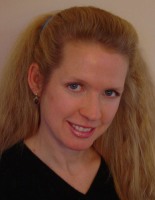Chronicle OnLine May 10, 2007
Wendy M. Williams and Stephen J. Ceci are Cornell professors of human development and the editors of "Why Aren't More Women in Science? Top Researchers Debate the Evidence" (2007). This article was excerpted from the authors' previously published article in the Chronicle of Higher Education. Submissions are invited for the Chronicle's regular column of ideas and opinion.
Universities save money by offering tenure to fewer professors: Today less than 40 percent of U.S. faculty members are on tenure track. In all the research and debate, one unexamined aspect of tenure is whether it fulfills its original justification, espoused by the American Association of University Professors since 1915, which is to ensure academic freedom -- professors' freedom to teach, conduct research and perform other duties without fear of job loss or censure. But does it?
One assistant professor was afraid to study a topic because senior colleagues with a contrasting view of the field did not want to see rival positions bolstered. Even now, as a tenured associate professor, she does not feel comfortable undertaking the research. She reasons that once promoted to full professor, she will finally pursue the topic without fear. Whatever happened to tenure's ensuring academic freedom -- wasn't tenure supposed to liberate professors to pursue controversial ideas?
Empirical data were absent, so we conducted a survey (with Katrin Mueller-Johnson, published in Behavioral and Brain Sciences). After e-mailing a random sample of 2,700 professors of all ranks and varied disciplines from top-rated colleges and universities across the country, 36 percent (961) agreed to participate. We also telephoned a random sample of 48 nonresponders; 43 responded, and their attitudes matched the original 961 responders.
We asked these 1,004 professors to react to real-world dilemmas involving colleagues wishing to teach courses unpopular with their peers, investigate unpopular topics and publish controversial findings; e.g., "Assistant Professor B is considering teaching a new course that several of B's senior colleagues frown upon. What would the typical assistant professor in B's position do?" For one-third of the professors, the question referred to an assistant professor; for another third, an associate professor; and for the final third, a full professor. Equal numbers of assistant, associate and full professors got each version of the question.
We compared how professors of a given rank believed colleagues of their own versus other ranks would behave. Our large sample enabled us to see how actual full professors said their peers would behave, for example, compared with how people at that rank were perceived as behaving by more junior colleagues.
Because we wondered if the lure of tenure and promotion impeded ethical behavior, we also asked our participants how colleagues act when confronted with such dilemmas as a colleague misappropriating grant funds or having a sexual relationship with an undergraduate.
Academic freedom should mean that professors with tenure act without fear of reprisal in these real-life situations, pursuing research that interests them, reporting unethical conduct by colleagues, etc. Sadly, tenure does not appear to confer such freedom.
Professors in our study were more timid than we expected, rarely confronting departmental colleagues who disagreed with the content of their research and teaching. Interestingly, everyone thought that everyone else would behave more boldly than they themselves would.
Having tenure was not associated with a greater willingness to speak one's mind or publish controversial findings. Comparing tenured associate professors with untenured assistant professors and tenured full professors revealed that the associates behaved more like their junior colleagues than like their senior ones.
The biggest increase in the tendency to engage in the academic freedoms mentioned above came upon promotion to full professor. That point usually comes 12-20 years after the Ph.D., during which time academic freedom is stifled, or at least muted.
One happy finding was that the idea of the renegade tenured professor -- often invoked during tenure reviews to block a candidate by instilling fear of the person's future selfish or irresponsible behavior -- turned out to be a myth. Most professors lack the moxie or desire to become renegades.
All the professors in our sample assumed that the colleague down the hall would be more likely than they themselves were to report another professor for misappropriating grant funds or having an inappropriate relationship with a student. (Interestingly, our survey revealed few disciplinary or gender differences.) In fact, some professors appear more concerned with remaining in their colleagues' good graces than they are with maintaining ethical standards.
One could argue that tenure helps attract a talented workforce, results in higher graduation rates at colleges and universities with higher proportions of tenure-track faculty members, and protects the few who most need it. But is tenure the most efficient way to achieve those goals? Some nations that do not offer tenure still protect academic freedom, through legislation or union contracts (e.g., Britain and New Zealand).
We conclude that tenure is not living up to its original promise: It does not liberate professors to exercise the freedoms of speech, writing and action. The muzzling effect of the current system of promotion in higher education must be weighed against tenure's virtues, such as higher graduation rates and the recruitment of a talented workforce.
The truth is, most of us walk on eggshells until we become full professors. To quote one 45-year-old friend, newly promoted to that rank, "It's great to finally be able to speak my mind at work."





